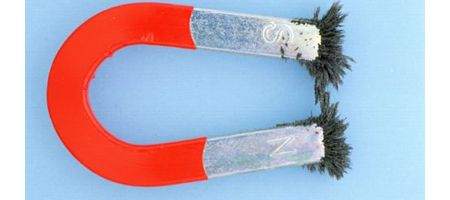British scientists have developed a soap that respondes to magnetic fields, meaning it could potentially be used to capture oil spills.

The University of Bristol team produced the soap by dissolving iron in a range of inert surfactant materials composed of chloride and bromide ions – very similar to those found in mouthwash or fabric conditioner. The addition of the iron creates metallic centres within the soap particles.
To test it, they introduced a magnet to a test tube containing the soap, covered by a less dense organic solution. When the magnet was introduced the iron-rich soap overcame both gravity and surface tension between the water and oil, rising through the organic solvent towards the magnet.
The potential applications are huge, says the team. The soap’s electrical conductivity, melting point, size and shape of aggregates and how readily it dissolves in water can be altered by a simple magnetic on and off switch.
In the past, doing this has meant adding an electric charge or changing the pH, temperature or pressure of the system – all changes that irreversibly alter the system composition and cost money.
Most notably, though, the soap’s magnetic properties also make it easier to round up and remove from a system once it has been added, making it a natural for environmental clean ups and water treatment.
“Any systems which act only when responding to an outside stimulus that has no effect on its composition is a major breakthrough as you can create products which only work when they are needed to,” says Peter Dowding, an industrial chemist not involved in the research.
“Also the ability to remove the surfactant after it has been added widens the potential applications to environmentally sensitive areas like oil spill clean ups where in the past concerns have been raised.”






